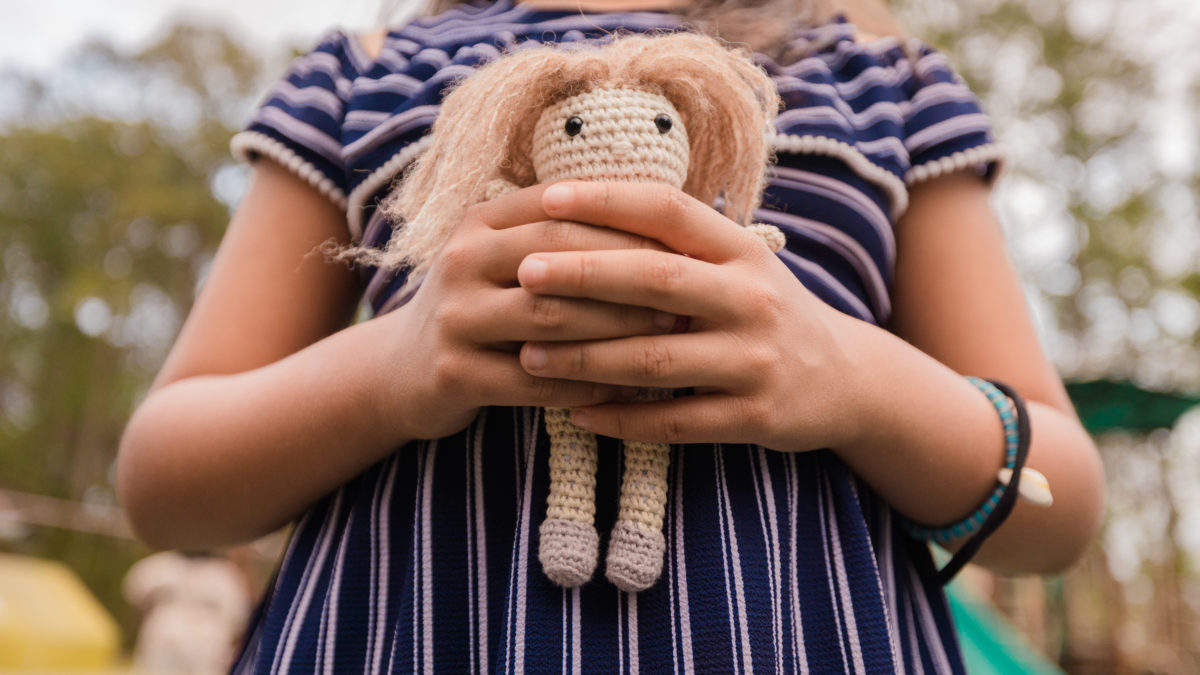COVID-19 Impact Series: Child Abuse and Neglect Risks in Onslow County and Beyond

Children are widely recognized as an extremely vulnerable population during natural disasters and emergencies—and with COVID-19 continuing its impact as an unprecedented health emergency, children across the globe have faced increased family and financial stress, changes in routine, and lack of access to vital community resources.
During the early months of the pandemic, reports of child abuse and neglect dropped drastically. Many experts feared that incidents of abuse hadn’t decreased at all; instead, many believed that child abuse and neglect cases were increasing but not being reported by mandated reporters—such as teachers and physicians—due to social isolation during the pandemic.
In the past few months, North Carolina child advocacy centers have seen a notable increase in reports and referrals, further affirming that the pandemic may have caused a decrease in reporting but not in actual abuse or neglect.
Child Abuse and Neglect During COVID-19
In December 2020, the CDC’s Morbidity and Mortality Weekly Report published an article that analyzed trends in U.S. emergency department visits related to suspected or confirmed child abuse and neglect before and during the pandemic. They found that official reports of child abuse and neglect went down across America for most of 2020—in some cases by as much as 20–70 percent.
In a study led by University of California San Francisco, researchers tracked a number of pediatric inpatients under the age of 5 and discovered a steep decline in the number of ER visits and hospital admissions. The study also found a lower percentage of physically abused infants during the pandemic compared to the previous year at 15.4 percent versus 21.3 percent.
This decrease in reports to child protection agencies is not necessarily positive by any means. In fact, it is largely attributed to less in-person contact between children and mandated reporters—including teachers, social workers, physicians, and friends. With school and child care closures across the nation, millions of children have lost close access to their external support system and individuals who commonly report cases of suspected violence or maltreatment, allowing many events of abuse to go under the radar.
Additionally, children spending so much time at home with their parents has posed a significant concern. More than 80 percent of child abuse and neglect is perpetrated by parents, 6.1 percent were relatives other than parents, and 4.2 percent were unmarried partners of parents. In Onslow County, our Child Advocacy Center has recently seen cases of abuse that are often more serious as children are trapped with their offenders and unable to escape to school or friends’ houses.
In Onslow County, the Department of Social Services receives 3,600 reports; of those, 1,900 are accepted for investigation and approximately 25 percent are substantiated. From July 2020 to June 2021, the DSS has investigated 1,193 reports of child abuse; of that number, 643 were between the ages of 0–5. Over the next few months, it’s likely that we will learn more about what the pandemic has meant for children in abuse and neglect situations—and gain a fuller understanding of its impact.
The Connection Between Economic Hardship and Abuse
Economic insecurity has long been associated with child physical abuse, neglect, and psychological maltreatment. Studies show that economically-insecure children experience 3–9 times more maltreatment than children who are economically secure. A 2018 study found that income losses, cumulative household material hardship, and housing hardship were the most reliable predictors of child maltreatment—all events that have occurred for millions of families over the course of the last year.
Economic insecurities, such as low income or unemployment, place intense economic pressure on families and often lead to heightened parental stress and depression. In many cases, this can lead to harsher parenting habits and child maltreatment.
Although the full extent of the pandemic’s impact on children at risk of maltreatment is still being understood—and will only be fully seen in time—experts believe that the COVID-19 has heightened the risk of child abuse and neglect in many homes.
How One Place is Helping
There are a number of public and private systems that can help prevent child abuse, mitigate its impact, and help children heal from any abuse that has occurred. At One Place, we take a two-pronged approach to child abuse: Prevention and Intervention. All of our programs are designed to serve as a preventative approach to child abuse—from helping families connect with safe, trustworthy child care programs to giving children and parents the tools they need to thrive.
For children who have been hurt by abuse, our Child Advocacy Center provides a personalized, child-first approach. We partner with a talented multidisciplinary team to deliver a wide range of support services, ultimately providing hope and healing to children and families. Although the health and social impacts of child abuse on a survivor often last a lifetime, we are dedicated to doing our part in supporting children in Onslow County access the resources they need to heal and thrive.
Learn more here.
Sources Consulted
- https://www.ucsf.edu/news/2021/03/419961/child-abuse-surges-times-crisis-pandemic-may-be-different
- https://pediatrics.aappublications.org/content/147/4/e2020038489
- https://www.cdc.gov/violenceprevention/pdf/childmaltreatment-facts-at-a-glance.pdf
- https://www.northcarolinahealthnews.org/2020/04/28/covid-19-child-abuse/
- https://journals.sagepub.com/doi/full/10.1177/1524838018756122
- https://www.cnn.com/2020/12/10/health/child-abuse-injuries-covid-19-wellness/index.html
- https://www.cdc.gov/mmwr/volumes/69/wr/mm6949a1.htm?s_cid=mm6949a1_w
- https://gcn.com/articles/2020/06/17/analytics-child-abuse.aspx
- https://pediatrics.aappublications.org/content/147/4/e2020038489
- https://www.uchicagomedicine.org/forefront/coronavirus-disease-covid-19/protecting-children-at-risk-during-the-pandemic
- https://www.ncbi.nlm.nih.gov/pmc/articles/PMC7472978/
- https://journals.sagepub.com/doi/full/10.1177/1077559520982066
- https://bcmj.org/articles/child-abuse-and-neglect-covid-19-era-primer-front-line-physicians-british-columbia
- https://jamanetwork.com/journals/jama/fullarticle/2769482
- https://www.ncbi.nlm.nih.gov/pmc/articles/PMC7441889/
